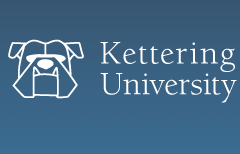Document Type
Meeting Document
Publication Date
10-31-2018
Abstract
This is a proposal to add one course, ISYS699 – Enterprise Information System Models, to the approved list of optional courses in the KUO MS in Engineering (Concentration in Electrical & Computer Engineering – Advanced Mobility) program. No other program changes are proposed.
Rationale:
The KUO MS in Engineering (Concentration in Electrical & Computer Engineering – Advanced Mobility) program consists of 40 Credit Hours of course work. The course work includes 32 Credit Hours of technical courses from the ECE Department and 8 Credit Hours (2 courses from a list of 7 optional courses) from BUSN, FINC, and MGMT. The 8 Credit Hours of course work provides an opportunity to learn business and financial management concepts in preparation to advance in positions of technical and/or managerial leadership.
The proposed program change and the course description are highlighted in Red, below.
Completion of 40 credits as follows:
Code
Title
Credit Hours
Modeling of Dynamic Systems
4
Digital Signal Processing Techniques for Automotive Engineering
4
Machine Drives for Electric Vehicles
4
CE-652
Artificial Intelligence for Autonomous Driving
4
EE-626
Power Electronics for Vehicle Electrification
4
ECE-632
Automotive Control Systems
4
CE-642
Mobile Robotics
4
Select two of the following:
8
International Business
Organizational Behavior
Financial Management
Technology Management
Project and Change Management
Managing People and Organizations
Leadership
Enterprise Information System Models
Free Elective
4
Total Credit Hours
40
Course Description: ISYS699 – Enterprise Information System Models
An overview of information systems (IS) viewed at two levels: the strategic role of IS and a process-oriented view of the organization and its relationships with suppliers, customers and competitors. We view processes as vehicles for achieving strategic objectives and transforming the organization. The major focus of the course is how organizations implement processes globally using enterprise resource planning (ERP), supply chain management (SCM), customer relationship management (CRM), Poduct Lifecycle Management (PLM), and social networks. The course also provides a brief IS infrastructure overview and addresses key IS management topics. Students learn about the ethical and legal implications of information systems.
Recommended Citation
Warrier, Ravi and Tewolde, Girma, "10/31/2018: Course Change Form ISYS699" (2018). UCC Documents. 511.
https://digitalcommons.kettering.edu/fs_uccdocuments/511

